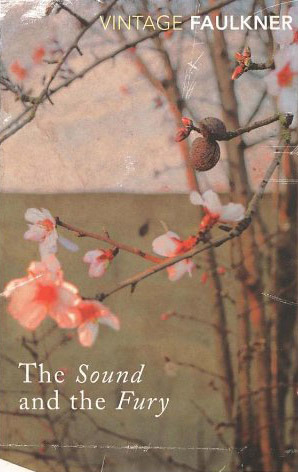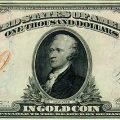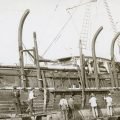 A sparrow slanted across the sunlight, onto the window ledge, and cocked his head at me. His eye was round and bright. First he’d watch me with one eye, then flick! and it would be the other one, his throat pumping faster than any pulse. The hour began to strike. The sparrow quit swapping eyes and watched me steadily with the same one until the chimes ceased, as if he were listening too. Then he flicked off the ledge and was gone.
A sparrow slanted across the sunlight, onto the window ledge, and cocked his head at me. His eye was round and bright. First he’d watch me with one eye, then flick! and it would be the other one, his throat pumping faster than any pulse. The hour began to strike. The sparrow quit swapping eyes and watched me steadily with the same one until the chimes ceased, as if he were listening too. Then he flicked off the ledge and was gone.
It was a while before the last stroke ceased vibrating. It stayed in the air, more felt than heard, for a long time. Like all the bells that ever rang still ringing in the long dying light-rays and Jesus and Saint Francis talking about his sister. Because if it were just to hell; if that were all of it. Finished. If things just finished themselves. Nobody else there but her and me. If we could just have done something so dreadful that they would have fled hell except us. I have committed incest I said Father it was I it was not Dalton Ames And when he put Dalton Ames. Dalton Ames. Dalton Ames. When he put the pistol in my hand I didn’t. That’s why I didn’t. He would be there and she would and I would. Dalton Ames. Dalton Ames. Dalton Ames. If we could have just done something so dreadful and Father said That’s sad too people cannot do anything that dreadful they cannot do anything very dreadful at all they cannot even remember tomorrow what seemed dreadful today and I said, You can shirk all things and he said, Ah can you. And I will look down and see my murmuring bones and the deep water like wind, like a roof of wind, and after a long time they cannot distinguish even bones upon the lonely and inviolate sand. Until on the Day when He says Rise only the flat-iron would come floating up. It’s not when you realise that nothing can help you–religion, pride, anything–it’s when you realise that you dont need any aid. Dalton Ames. Dalton Ames. Dalton Ames. If I could have been his mother lying with open body lifted laughing, holding his father with my hand refraining, seeing, watching him die before he lived. One minute she was standing in the door
I went to the dresser and took up the watch, with the face still down. I tapped the crystal on the corner of the dresser and caught the fragments of glass in my hand and put them into the ashtray and twisted the hands off and put them in the tray. The watch ticked on. I turned the face up, the blank dial with little wheels clicking and clicking behind it, not knowing any better. Jesus walking on Galilee and Washington not telling lies. Father brought back a watch-charm from the Saint Louis Fair to Jason: a tiny opera glass into which you squinted with one eye and saw a skyscraper, a ferris wheel all spidery, Niagara Falls on a pinhead. There was a red smear on the dial. When I saw it my thumb began to smart. I put the watch down and went into Shreve’s room and got the iodine and painted the cut. I cleaned the rest of the glass out of the rim with a towel.
I laid out two suits of underwear, with socks, shirts, collars and ties, and packed my trunk. I put in everything except my new suit and an old one and two pairs of shoes and two hats, and my books. I carried the books into the sitting-room and stacked them on the table, the ones I had brought from home and the ones Father said it used to be a gentleman was known by his books; nowadays he is known by the ones he has not returned and locked the trunk and addressed it. The quarter hour sounded. I stopped and listened to it until the chimes ceased.
I bathed and shaved. The water made my finger smart a little, so I painted it again. I put on my new suit and put my watch on and packed the other suit and the accessories and my razor and brushes in my hand bag, and folded the trunk key into a sheet of paper and put it in an envelope and addressed it to Father, and wrote the two notes and sealed them.
The shadow hadn’t quite cleared the stoop. I stopped inside the door, watching the shadow move. It moved almost perceptibly, creeping back inside the door, driving the shadow back into the door. Only she was running already when I heard it. In the mirror she was running before I knew what it was. That quick her train caught up over her arm she ran out of the mirror like a cloud, her veil swirling in long glints her heels brittle and fast clutch ing her dress onto her shoulder with the other hand, run ning out of the mirror the smells roses roses the voice that breathed o’er Eden. Then she was across the porch I couldn’t hear her heels then in the moonlight like a cloud, the floating shadow of the veil running across the grass, into the bellowing. She ran out of her dress, clutching her bridal, running into the bellowing where T. P. in the dew Whooey Sassprilluh Benjy under the box bellowing. Father had a V-shaped silver cuirass on his running chest
Shreve said, “Well, you didn’t…. Is it a wedding or a wake?”
“I couldn’t make it,” I said.
“Not with all that primping. What’s the matter? You think this was Sunday?”
“I reckon the police wont get me for wearing my new suit one time,” I said.
“I was thinking about the Square students. They’ll think you go to Harvard. Have you got too proud to at tend classes too?”
“I’m going to eat first.” The shadow on the stoop was gone. I stepped into sunlight, finding my shadow again. I walked down the steps just ahead of it. The half hour went. Then the chimes ceased and died away.
Deacon wasn’t at the post office either. I stamped the two envelopes and mailed the one to Father and put Shreve’s in my inside pocket, and then I remembered where I had last seen the Deacon. It was on Decoration Day, in a G.A.R. uniform, in the middle of the parade. If you waited long enough on any corner you would see him in whatever parade came along. The one before was on Columbus’ or Garibaldi’s or somebody’s birthday. He was in the Street Sweepers’ section, in a stovepipe hat, carrying a two inch Italian flag, smoking a cigar among the brooms and scoops. But the last time was the G.A.R. one, because Shreve said:
“There now. Just look at what your grandpa did to that poor old nigger.”
“Yes,” I said. “Now he can spend day after day marching in parades. If it hadn’t been for my grandfather, he’d have to work like whitefolks.”
I didn’t see him anywhere. But I never knew even a working nigger that you could find when you wanted him, let alone one that lived off the fat of the land. A car came along. I went over to town and went to Parker’s and had a good breakfast. While I was eating I heard a clock strike the hour. But then I suppose it takes at least one hour to lose time in, who has been longer than history getting into the mechanical progression of it.
When I finished breakfast I bought a cigar. The girl said a fifty cent one was the best, so I took one and lit it and went out to the street. I stood there and took a couple of puffs, then I held it in my hand and went on toward the corner. I passed a jeweller’s window, but I looked away in time. At the corner two bootblacks caught me, one on either side, shrill and raucous, like blackbirds. I gave the cigar to one of them, and the other one a nickel. Then they let me alone. The one with the cigar was trying to sell it to the other for the nickel.
There was a clock, high up in the sun, and I thought about how, when you dont want to do a thing, your body will try to trick you into doing it, sort of unawares. I could feel the muscles in the back of my neck, and then I could hear my watch ticking away in my pocket and after a while I had all the other sounds shut away, leaving only the watch in my pocket. I turned back up the street, to the window. He was working at the table behind the window. He was going bald. There was a glass in his eye – a metal tube screwed into his face. I went in.
The place was full of ticking, like crickets in September grass, and I could hear a big clock on the wall above his head. He looked up, his eye big and blurred and rushing beyond the glass. I took mine out and handed it to him.
“I broke my watch.”
He flipped it over in his hand. “I should say you have. You must have stepped on it.”
“Yes, sir. I knocked it off the dresser and stepped on it in the dark. It’s still running though.”
He pried the back open and squinted into it. “Seems to be all right. I cant tell until I go over it, though. I’ll go into it this afternoon.”
“I’ll bring it back later,” I said. “Would you mind telling me if any of those watches in the window are right?”
He held my watch on his palm and looked up at me with his blurred rushing eye.
“I made a bet with a fellow,” I said. “And I forgot my glasses this morning.”
“Why, all right,” he said. He laid the watch down and half rose on his stool and looked over the barrier. Then he glanced up at the wall. “It’s twen–”
“Dont tell me,” I said, “please sir. Just tell me if any of them are right.”
He looked at me again. He sat back on the stool and pushed the glass up onto his forehead. It left a red circle around his eye and when it was gone his whole face looked naked. “What’re you celebrating today?” he said. “That boat race aint until next week, is it?”
“No, sir. This is just a private celebration. Birthday. Are any of them right?”
“No. But they haven’t been regulated and set yet. If you’re thinking of buying one of them–”
“No, sir. I dont need a watch. We have a clock in our sitting room. I’ll have this one fixed when I do.” I reached my hand.
“Better leave it now.”
“I’ll bring it back later.” He gave me the watch. I put it in my pocket. I couldn’t hear it now, above all the others. “I’m much obliged to you. I hope I haven’t taken up your time.”
“That’s all right. Bring it in when you are ready. And you better put off this celebration until after we win that boat race.”
“Yes, sir. I reckon I had.”
I went out, shutting the door upon the ticking. I looked back into the window. He was watching me across the barrier. There were about a dozen watches in the window, a dozen different hours and each with the same assertive and contradictory assurance that mine had, without any hands at all. Contradicting one another. I could hear mine, ticking away inside my pocket, even though nobody could see it, even though it could tell nothing if anyone could.
And so I told myself to take that one. Because Father said clocks slay time. He said time is dead as long as it is being clicked off by little wheels; only when the clock stops does time come to life. The hands were extended, slightly off the horizontal at a faint angle, like a gull tilting into the wind. Holding all I used to be sorry about like the new moon holding water, niggers say.







